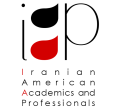Thursday, November 13, 2008, 7:30 PM
By: Bahram Momen, Ph.D
Associate Professor, Environmental Science and Statistics and Director of the Biometrics Program
University of Maryland, College Park
Synopsis:
Air pollution can adversely affect all major components of the environment. Air pollution has accelerated since the industrial revolution. Damage had been mainly local until early 1970s. Air pollution can occur both indoor and outdoor. Indoor air pollution effects are usually considered with regard to human health, while the outdoor air pollution effects are considered at the ecosystem levels. The long-term stability and sustainability of the environment and all species living within it can be severely endangered by air pollution. Monetary losses due to adverse effects of air pollution have not yet been evaluated accurately, let alone other health and social aspect of such negative effects. Adverse effects of air pollution will likely increase in the future due to increases in population, the standard of living, and industrialization, especially in the developing countries. In this presentation, you will be familiarized with the concepts of indoor and outdoor air pollutions, the sources, adverse effects and possible ways to curb the damage.
About the Lecturer:
Dr, Bahram Momen is an Associate professor of Environmental Science and Statistics at the Department of Environmental Science and Technology and the Director of the Biometrics Program at the University of Maryland College Park. At his current position, Dr. momen performs research on the effects of air pollution and climate change on terrestrial and aquatic ecosystems; teaches advance graduate courses in research methods, scientific thinking, experimental design, and data analysis; and direct master’s and Ph.D. Students. Dr. Momen is the author/co-author of 37 referred publications and more than 60 presentations and abstracts. He has received several prestigious teaching awards at the university, local and regional (Northeastern US) levels. He has recently been invited to give a presentation for representatives of more than 140 developing countries at the United Nations Headquarter in New York City regarding air pollution effects on the sustainable development. Dr. Momen has earned a B.S. in Forest Engineering (Sari College of Agricultural Engineering, University of Mazandaran, Iran), an M.S. in plant Ecophysiology (University of California at Davis), and a Ph.D. in Natural Resources and Biometrics (University of California at Berkeley). Dr. Momen conducted two years of post doctoral research at Rensselaer Polytechnic Institute (Troy, New York), and worked there as a research scientist for 4 years before coming to the University of Maryland, College Park.
Location:
Montgomery Community College (Rockville Campus)- Humanity Building (HU), Conference Room 009
Get Directions, Bulding Location on Campus
Dues: $15 per person, $5 for students (including dinner)


